The choice of battery significantly impacts the efficiency and functionality of various setups, ranging from mobile applications to stationary energy storage systems. In the realm of batteries, the 12V lithium-ion variety stands out due to its versatile capabilities and superior performance. This blog aims to dissect the distinctions among various battery types with a particular emphasis on the benefits of using a 12V lithium-ion battery. By understanding these differences, users can make informed decisions that enhance the operation and longevity of their battery-dependent applications.
Understanding 12V Battery Technologies
Traditional Lead Acid Batteries
Flooded Lead Acid Batteries
Flooded lead acid batteries have been a cornerstone in the realm of power storage solutions, utilized extensively across various sectors. These batteries function through a chemical reaction that occurs between lead plates fully submerged in a sulfuric acid solution. This process has proven effective for power storage over the years.
Despite their effectiveness, these traditional batteries require considerable upkeep. Regular maintenance activities include the addition of water to compensate for evaporation and meticulous handling to prevent hazardous acid spills. Such tasks not only demand time and attention but also increase the risk of operational errors.
Furthermore, in comparison to the more modern and sealed battery versions, flooded lead acid batteries offer a lower level of convenience. Their open design, necessary for enabling certain chemical processes, often results in higher maintenance demands and poses greater challenges for users, making them less appealing in today’s rapidly advancing technological landscape.
Valve Regulated Lead Acid (VRLA) Batteries
Valve Regulated Lead Acid (VRLA) batteries represent a significant technological advancement over their traditional counterparts. These batteries incorporate innovative design changes that encapsulate the electrolyte within a gel or an absorbent glass mat (AGM). This structural modification plays a crucial role in enhancing the battery's overall reliability and longevity.
The encapsulation of the electrolyte significantly minimizes the risk of leakage, a common issue with traditional flooded batteries. By preventing the electrolyte from drying out, VRLA batteries maintain their efficiency for a longer period. This feature is particularly beneficial in applications where battery maintenance is challenging or infrequent.
VRLA batteries are designed to offer a more secure and low-maintenance solution, making them highly suitable for environments where safety and reliability are of utmost importance. Their sealed nature not only reduces maintenance efforts but also makes them an ideal choice for a variety of applications, ranging from mobile platforms to stationary backup systems. This shift towards VRLA technology highlights an important trend in the battery industry towards more user-friendly and maintenance-free solutions.
Advancements in Lithium Ion Solutions
Lithium Ion Battery Packs
Lithium-ion battery packs represent a leap in battery technology, characterized by their high energy density and lightweight relative to their energy output. These batteries are engineered to support quicker charging times and longer lifespans, reducing downtime and increasing usability in high-demand settings. Their robustness and efficiency make them particularly suited for advanced applications that require dependable, long-term energy solutions.
Why Choose a 12V Lithium Ion Battery
Opting for a 12V lithium-ion battery is an excellent choice due to its myriad benefits which include exceptional longevity, minimal maintenance, and superior efficiency. These batteries are engineered to provide a stable power output with minimal energy loss, making them ideal for applications that demand consistent and reliable power supply. Furthermore, their adaptability across a spectrum of temperatures and conditions underscores their superiority in performance across diverse environments and applications.

Maintenance and Lifecycle Management
The Need for Regular Maintenance
Maintenance Needs for Lead Acid Batteries
Lead acid batteries, especially the traditional types, require consistent and diligent maintenance to achieve peak performance throughout their lifecycle. The maintenance routine for these batteries should include:
- Periodic Inspection: Regularly check battery terminals to prevent and remove corrosion, which can significantly impede battery efficiency.
- Fluid Level Management: It is crucial to monitor and maintain the electrolyte levels. Low fluid levels can lead to battery damage and reduced capacity.
- Casing Inspection: Ensure that the battery casing is intact to prevent leaks, which can pose environmental hazards and reduce battery life.
- Temperature Checks: Batteries should be operated within recommended temperature ranges to avoid overheating or freezing, which can lead to reduced efficacy and lifespan.
This regimented maintenance not only mitigates the effects of wear and tear but also significantly prolongs the battery's functional lifespan.
Low Maintenance Advantage of Lithium Ion Batteries
Lithium-ion batteries represent a leap forward in battery technology, offering significant advantages over traditional lead acid batteries in terms of maintenance:
- Advanced Design: They are designed with technologies that limit degradation and enhance cell stability, thus reducing maintenance needs.
- Reduced Wear and Tear: These batteries inherently avoid common issues such as electrolyte depletion and plate sulfation.
- Cost Efficiency: The reduction in maintenance demands lowers the long-term cost of ownership.
- Enhanced Reliability: With fewer maintenance requirements, lithium-ion batteries provide greater convenience and reliability for users.
Ensuring Your Battery is Always Fully Charged
Techniques for Keeping Batteries Charged
Keeping batteries fully charged, especially in applications requiring deep cycling, is essential for maximizing their lifespan and performance. Effective charging techniques include:
- Smart Charging Systems: Utilize chargers that adapt the charge rate based on the battery’s current condition and environmental factors.
- Regular Monitoring: Frequently check the battery's state of charge to ensure it is within optimal levels.
- Avoid Deep Discharging: Prevent the battery from being fully depleted before recharging to avoid damaging the cells.
- Temperature Management: Ensure that the charging environment is within the recommended temperature range to maintain efficiency and prevent damage.
Practical Applications and Configurations
Solar Power Setups
Integrating with Solar Panels
The integration of 12V batteries with solar panels plays a crucial role in developing sustainable and efficient energy systems. These batteries are designed to store the electrical energy produced by solar panels during peak sunlight hours. This stored energy is crucial, as it ensures there is a continuous and reliable power supply available, even during periods when sunlight is not optimal, such as during cloudy weather or at night.
To achieve optimal system performance, it is essential to properly configure and match the battery capacity with the solar output. This involves calculating the total energy output of the solar panels and ensuring that the battery capacity can store a sufficient amount of this energy to meet demand. An accurate setup prevents overcharging and underutilization of batteries, thereby enhancing the longevity and efficiency of the energy system.
Moreover, integrating 12V batteries with solar panels requires careful consideration of the physical and electrical compatibility of the components. This includes selecting appropriate charge controllers, inverters, and other regulatory mechanisms that help manage the flow and distribution of electricity. These components are vital for maintaining system stability and safety, protecting both the batteries and solar panels from potential damage due to irregular power supply or environmental factors.
Everyday Uses of 12V DC Power
Home and Outdoor Applications
The utility of 12V DC power systems is extensively recognized in various everyday applications. These systems are particularly advantageous for powering portable devices and supporting energy needs in off-grid scenarios. Whether it is for recreational vehicles, camping sites, or remote cabins, the 12V DC systems provide a dependable source of power that can be tailored to a wide array of electrical demands.
The versatility and robustness of 12V DC power systems make them an ideal choice for individuals seeking a reliable and adaptable power solution. These systems are capable of operating under diverse environmental conditions, making them suitable for both indoor and outdoor settings. For example, they can power everything from small household appliances to critical communication devices, ensuring that energy is available wherever it is needed.
Additionally, the adaptability of 12V DC power systems is further highlighted by their capacity to integrate with other energy sources and storage solutions. This allows for the creation of hybrid systems that can provide enhanced reliability and efficiency. For instance, combining 12V DC systems with solar panels or wind turbines can lead to a more sustainable and self-sufficient setup, reducing reliance on traditional power grids and promoting environmental sustainability.

Purchasing and Economic Considerations
When to Buy
Taking Advantage of Black Friday Deals
Black Friday provides a prime opportunity to acquire high-quality batteries at a reduced cost. Prospective buyers should focus on specifications such as efficiency, durability, and warranty offerings when selecting a battery, particularly during promotional periods. Opting for a reputable brand like LANPWR, known for its quality and resilience, ensures that the investment is sound and future-proof.
Cost-Benefit Analysis
Comparing Costs of Lead Acid vs. Lithium Ion
While the upfront cost of lithium-ion batteries may be higher than that of lead-acid types, their extensive lifecycle, lower maintenance requirements, and greater efficiency offer significant cost savings over time. A detailed cost-benefit analysis will typically reveal that the total cost of ownership of lithium-ion batteries is lower when factoring in their extended lifespan and minimal upkeep.
The decision to select a rechargeable 12V battery, particularly one of the lithium-ion varieties such as the LANPWR model, is of paramount importance for those aiming to boost both the efficiency and reliability of their electronic systems. Lithium-ion batteries, renowned for their high energy density and long lifespan, provide substantial benefits over traditional battery technologies. These advantages manifest in several critical areas:
- Performance: Lithium-ion batteries deliver a consistent voltage output and maintain a strong charge capacity even under rigorous use. This consistent performance is vital for applications that demand a reliable power source for extended periods.
- Maintenance: Unlike lead-acid batteries, lithium-ion batteries require minimal maintenance. This reduces the need for frequent checks and replacements, thereby lowering the time and cost associated with upkeep.
- Cost-Effectiveness: Although the initial investment in lithium-ion batteries may be higher, their long operational life and low maintenance requirements render them more cost-effective in the long term. Over time, the cost per cycle of a lithium-ion battery is significantly lower than that of other battery types.
- Eco-Friendliness: Lithium-ion batteries are generally more environmentally friendly than their counterparts. They boast a cleaner technology with fewer emissions and, importantly, are recyclable, which contributes to a reduced environmental footprint.
- Versatility: The compact size and ability of lithium-ion batteries to be mounted in a variety of positions and locations make them extremely versatile. This flexibility ensures that they can be integrated into a wide array of systems and applications, from small portable devices to large-scale energy storage.
In conclusion, choosing a lithium-ion rechargeable 12V battery like the LANPWR model is a strategic decision that enhances the performance, efficiency, and reliability of a wide range of electronic applications. Their superior characteristics not only fulfill current technological demands but also offer a sustainable power solution for the future.
Elevate your energy solutions by considering the advanced, efficient, and reliable battery systems available. Take advantage of upcoming Black Friday sales to invest in a high-quality LANPWR battery, ensuring that your choice meets your specific needs and maximizes your system's potential.

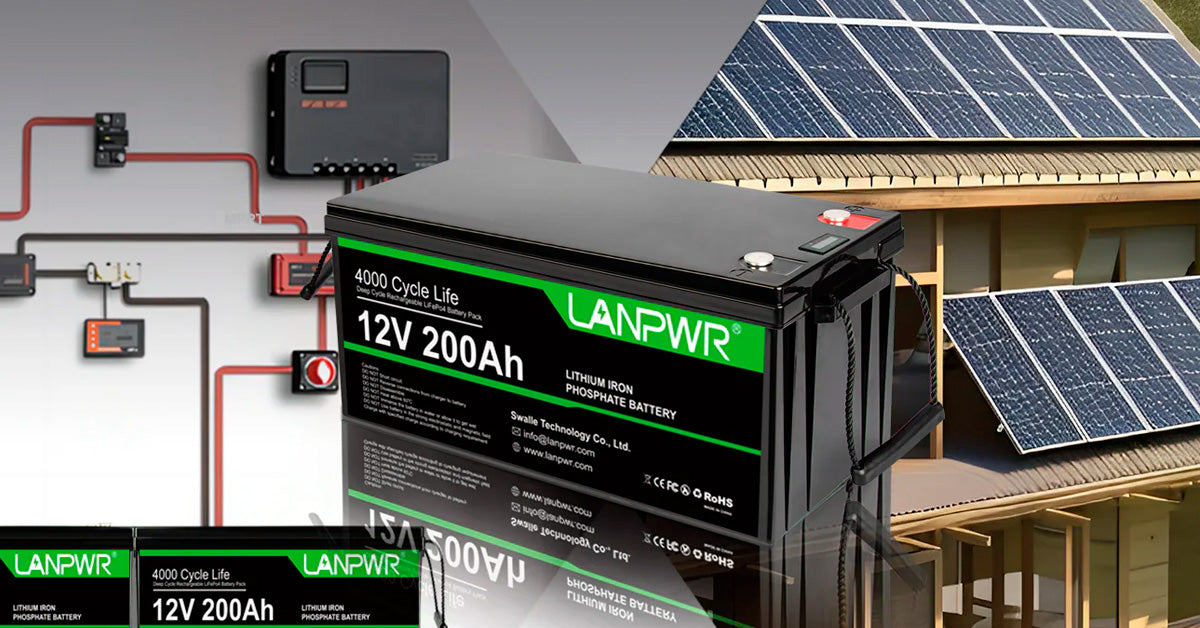
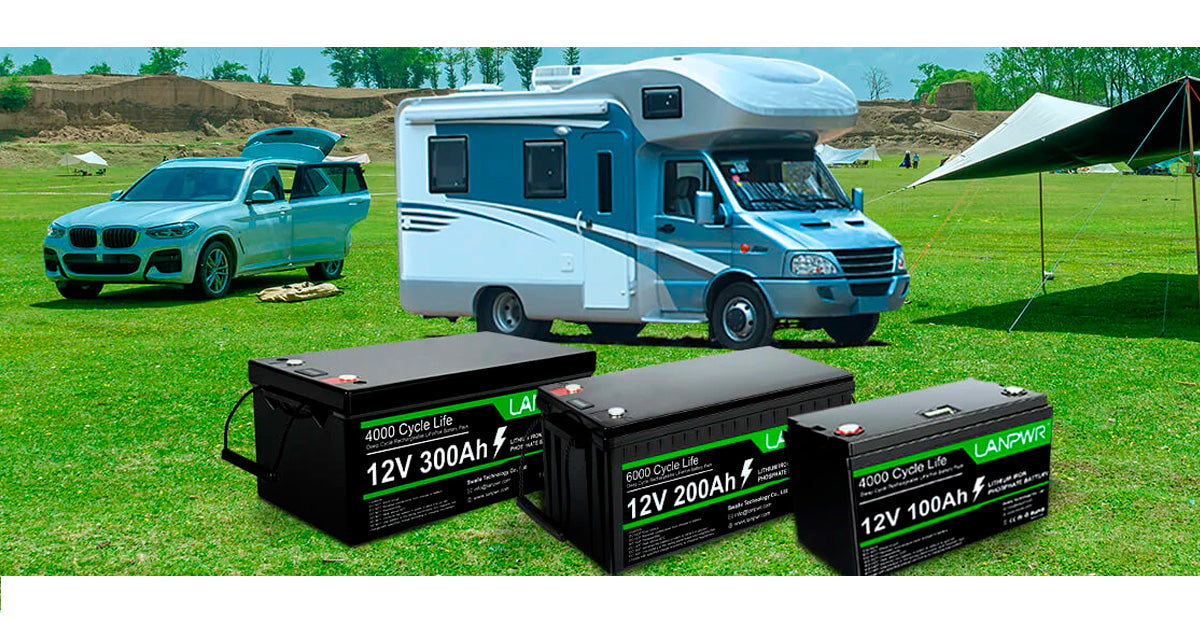

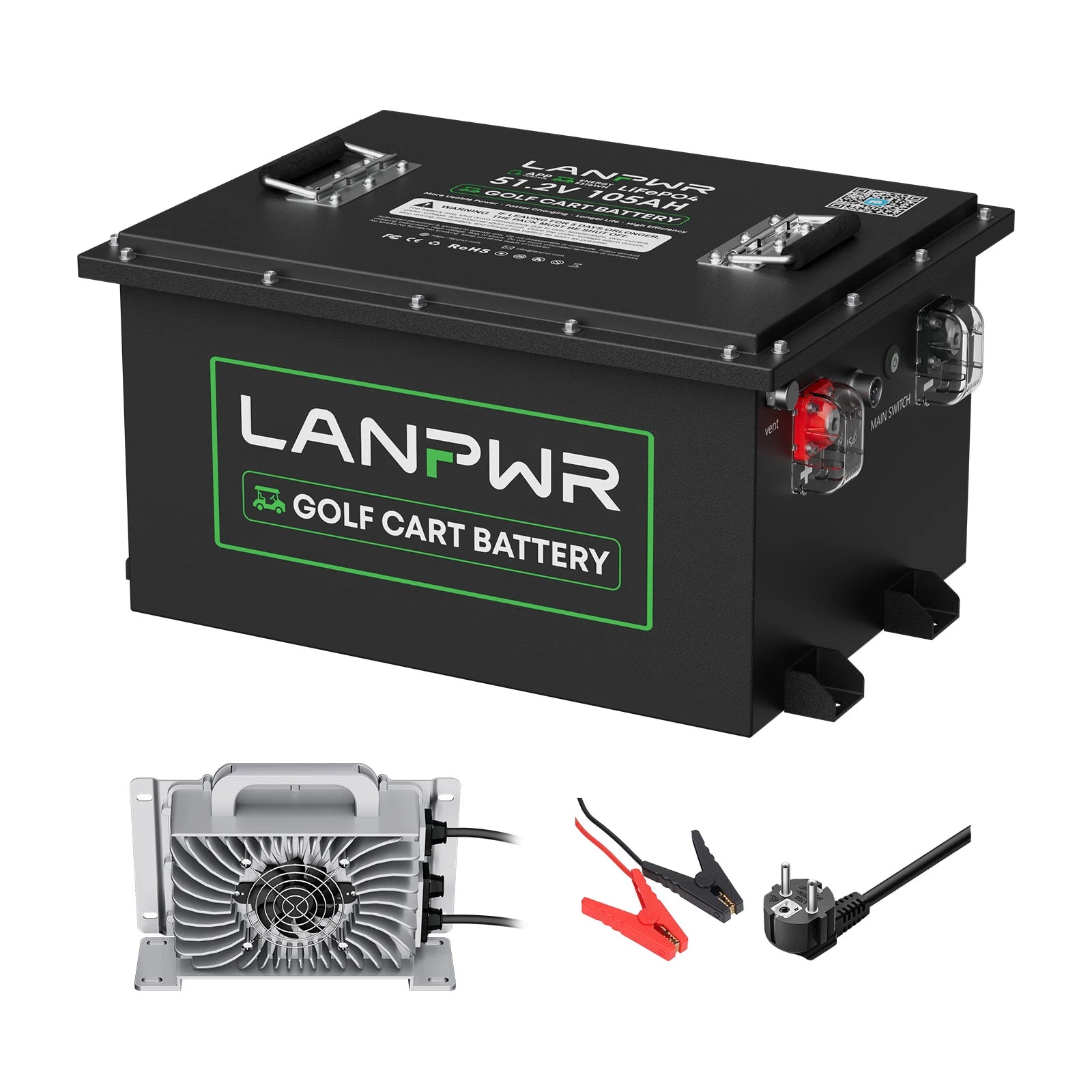
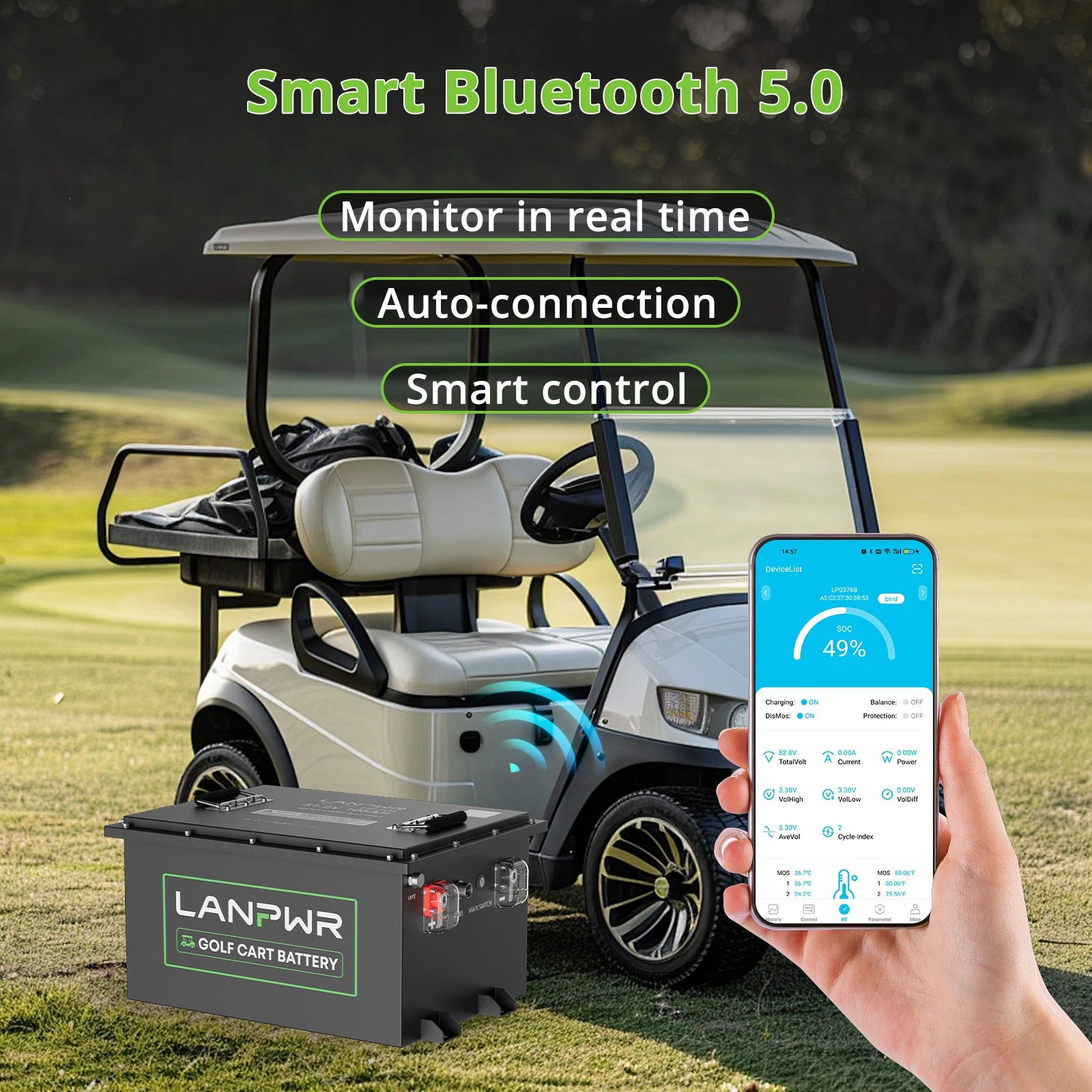
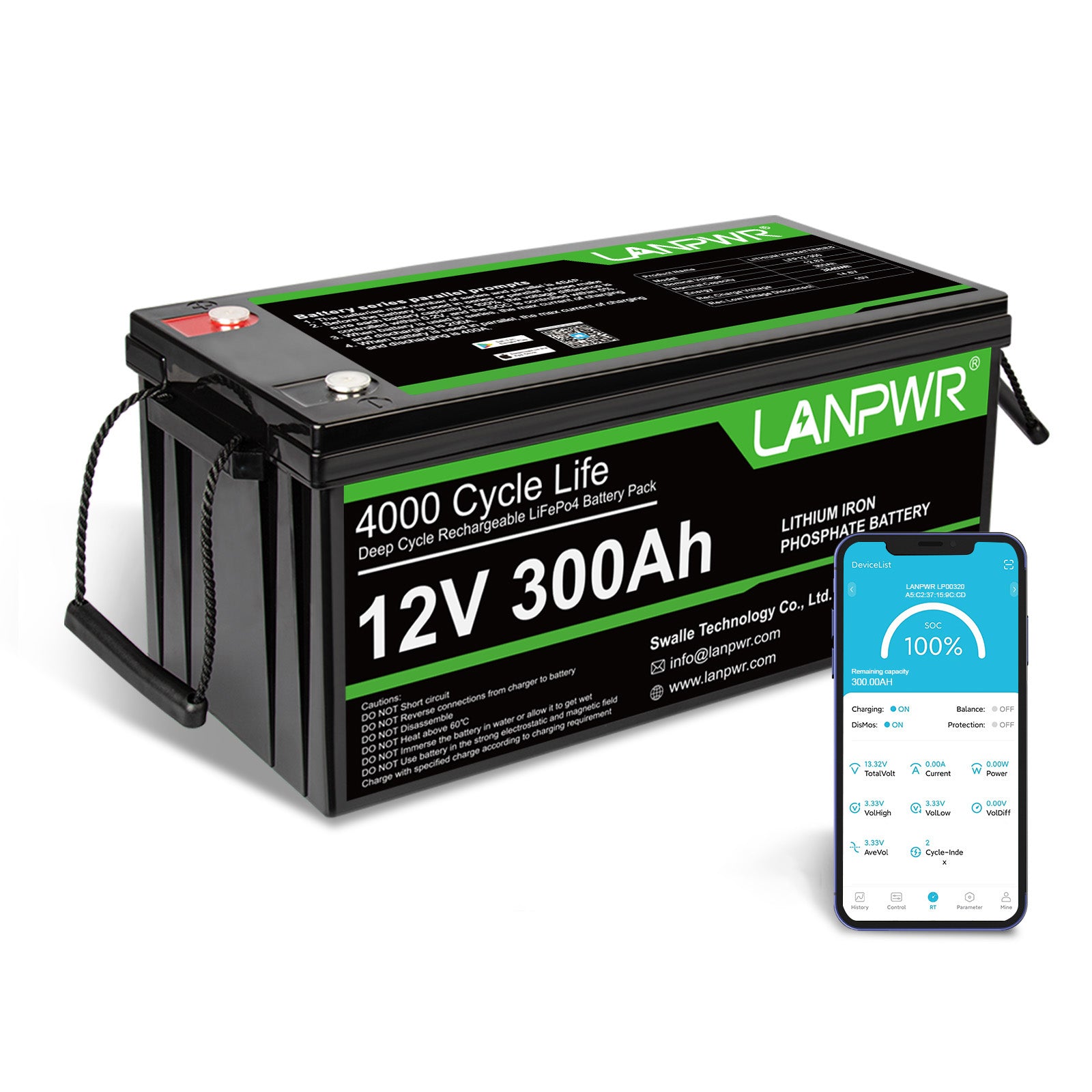
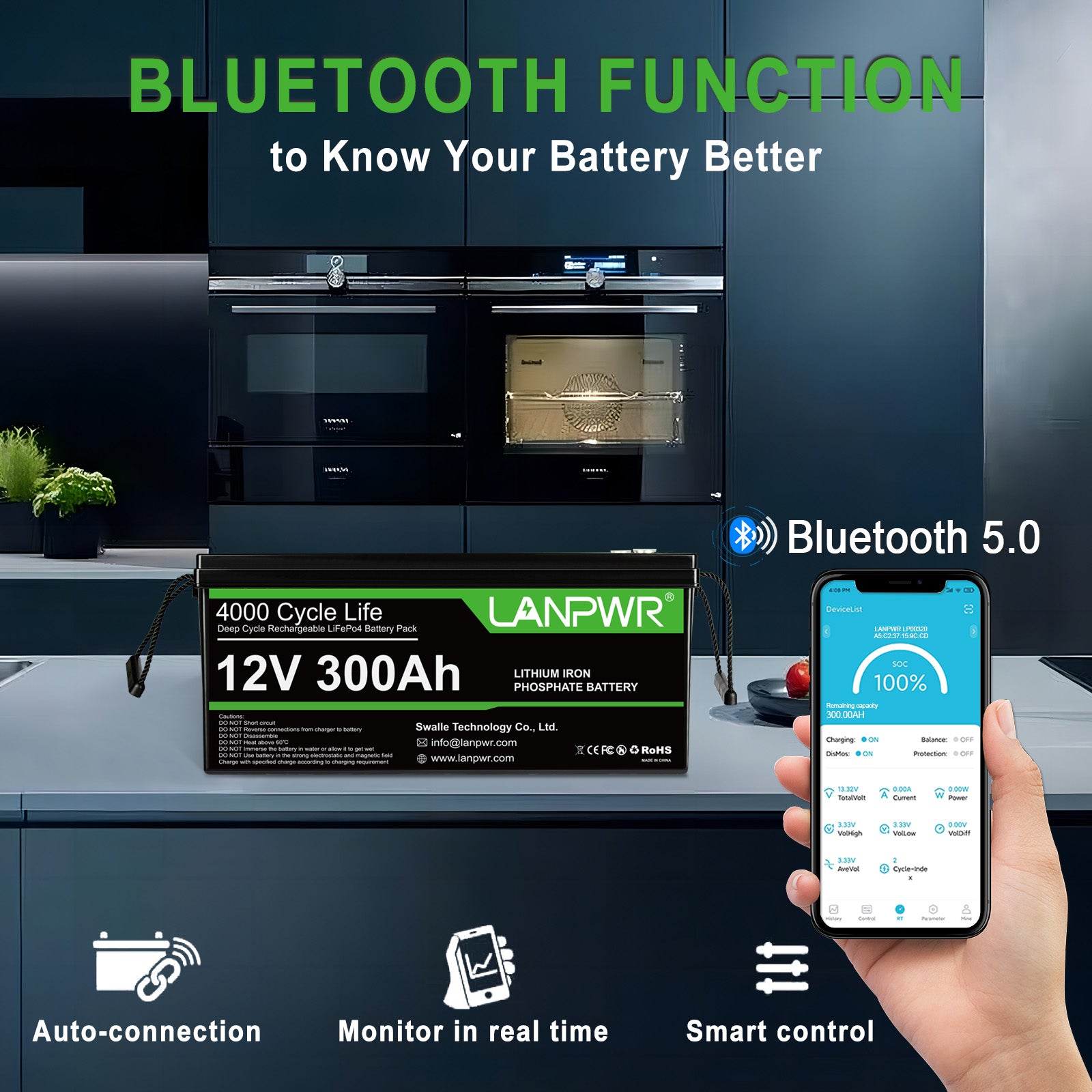
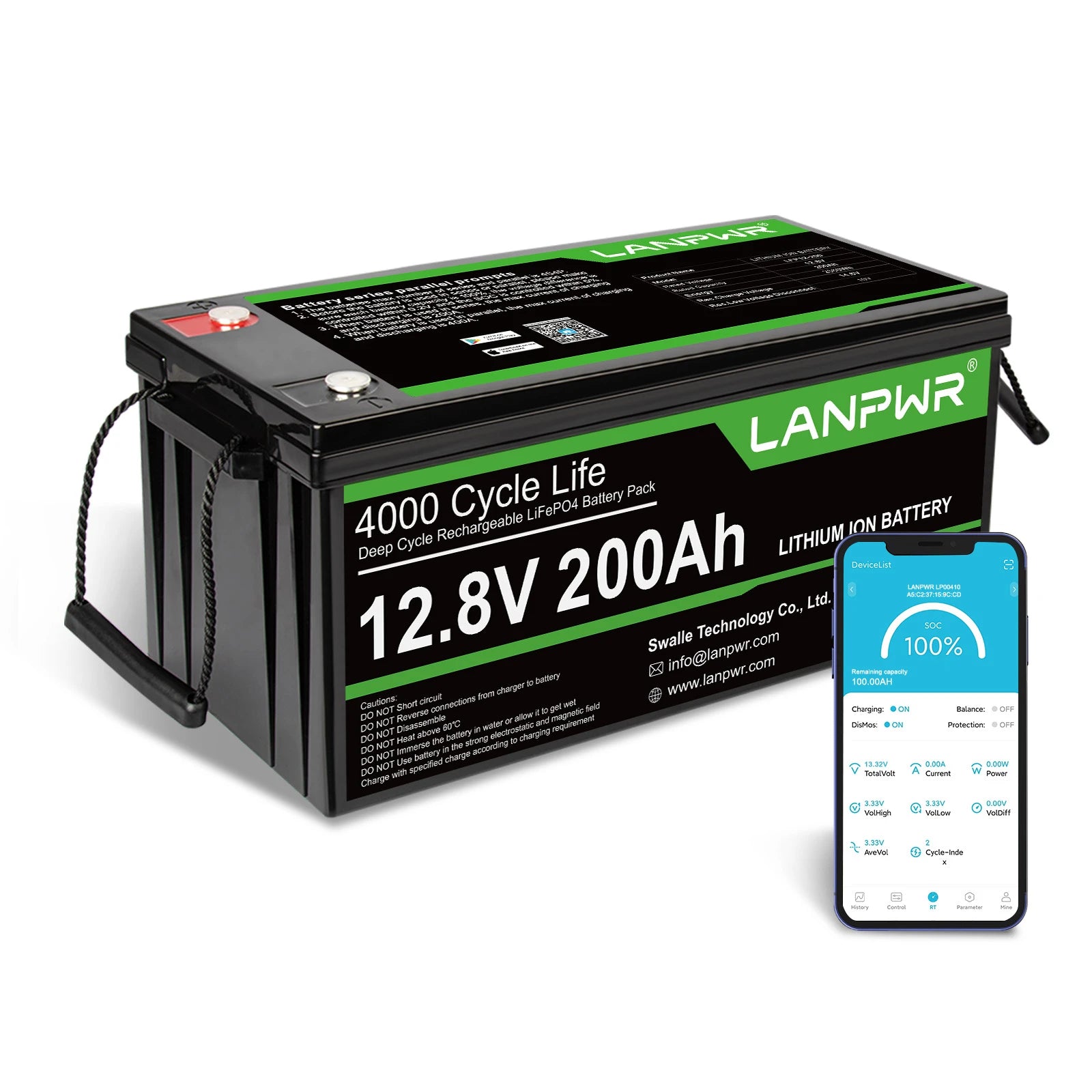
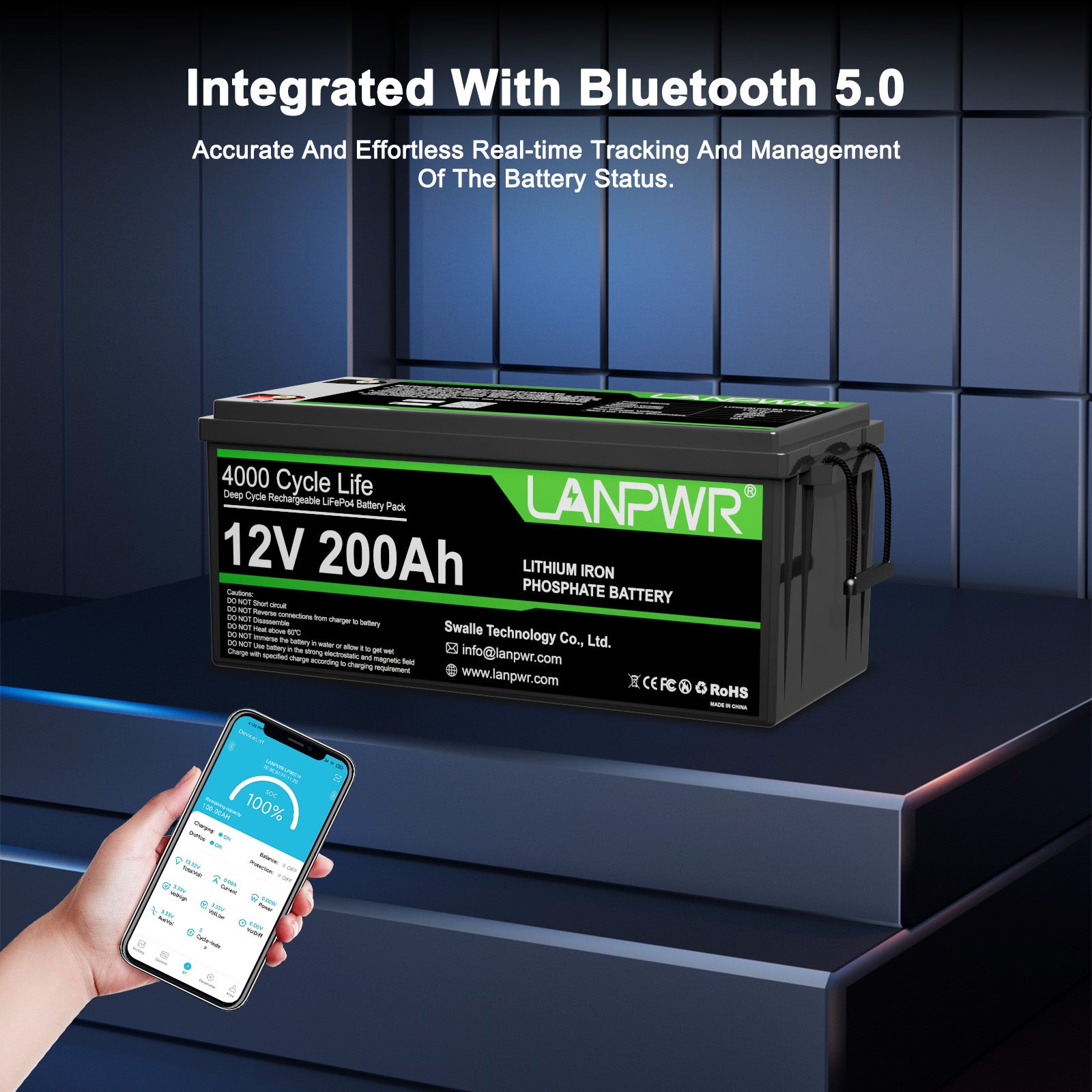
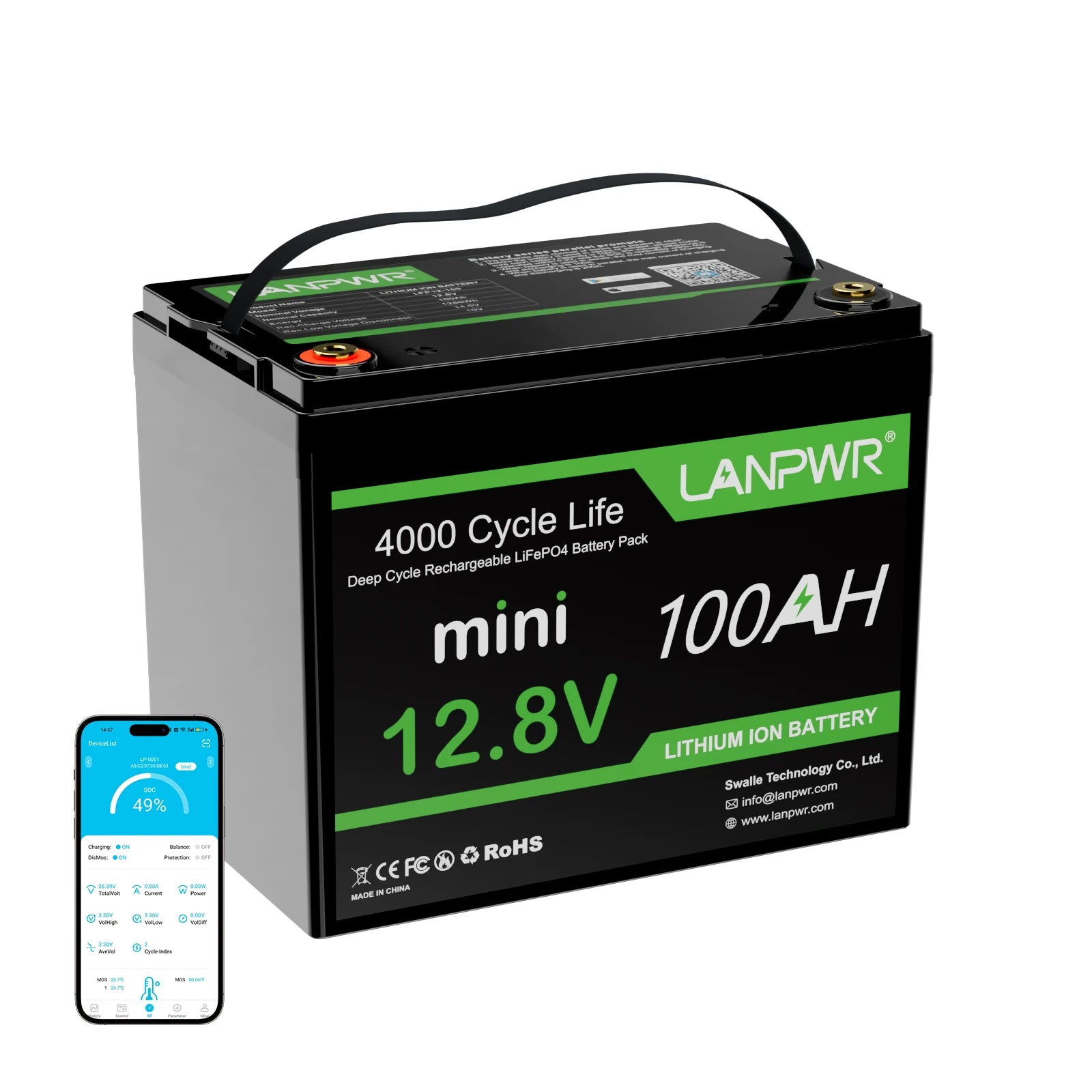

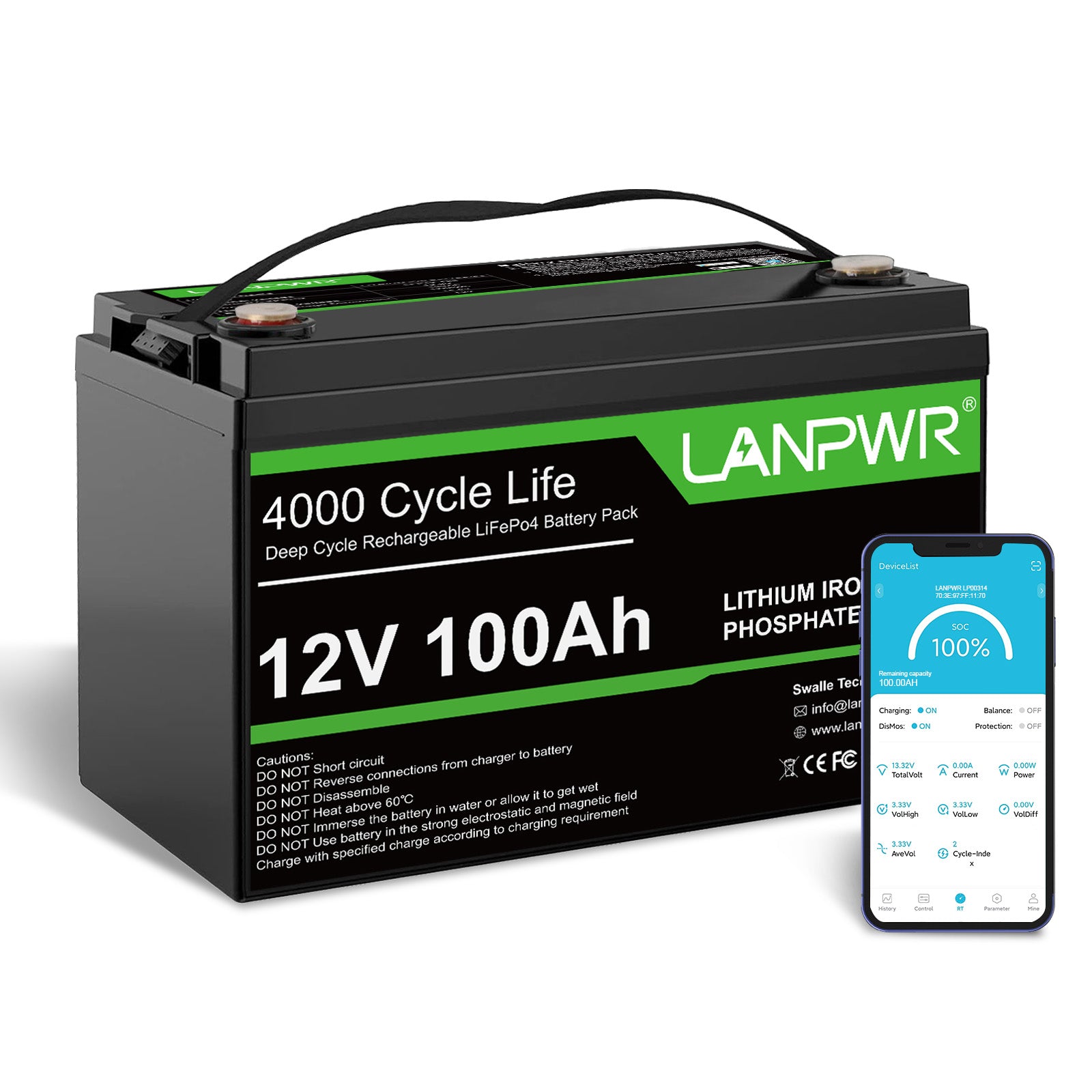
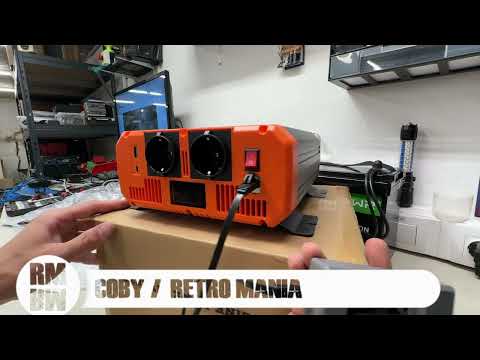
Leave a comment
This site is protected by hCaptcha and the hCaptcha Privacy Policy and Terms of Service apply.